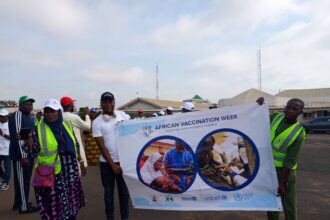Dementia is fast becoming a major public health challenge in Sub-Saharan Africa, with current estimates showing over 3.9 million people affected, a number projected to surge to 14 million by 2050, according to the World Health Organization (WHO).
In Nigeria alone, more than 1 million people live with dementia, yet widespread misconceptions, cultural stigma, and inadequate healthcare infrastructure leave many without proper diagnosis or care.
Despite the rising prevalence, dementia remains poorly understood, particularly in rural communities where symptoms like memory loss and behavioral changes are often dismissed as normal aging or wrongly attributed to supernatural causes such as witchcraft. These beliefs delay early intervention, leaving sufferers without medical support.
Tamuno Tonte Abban, a registered nurse and healthcare advocate specializing in geriatric care, has said that “the lack of awareness and trained healthcare professionals means many dementia patients are misdiagnosed or suffer in silence.”
“Without proper education, families may not even recognize dementia as a medical condition”, she added.
In many African societies, dementia care falls heavily on families, leading to caregiver burnout due to limited resources and knowledge.
The stigma surrounding mental health further discourages families from seeking professional help, increasing isolation for patients.
To bridge the gap, Abban emphasizes practical self-care strategies, including structured daily routines, physical activity, and mental stimulation through storytelling and traditional music.
“Simple, culturally familiar activities can significantly improve cognitive function and emotional well-being,” she stated.
Some progress has been made, with organizations like Alzheimer’s Disease International partnering with African governments to integrate dementia care into health policies. Kenya’s community-based programs, for instance, have successfully reduced stigma and trained families in dementia care.
However, major hurdles persist, especially in rural areas with weak healthcare systems and high treatment costs. “Many families simply cannot afford or access the care their loved ones need,” Abban explained.
Abban urged governments, healthcare providers, and international organizations to prioritize dementia care through awareness campaigns, caregiver training, and improved medical infrastructure. “Without urgent action, millions will continue to suffer needlessly,” she warned.








